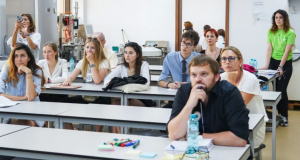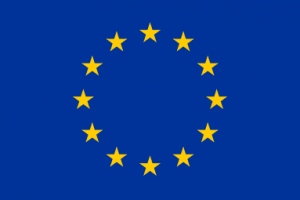PHERECLOS was a shipbuilder in Greek mythology, whose fleet helped to cross unknown passages in the Mediterranean Sea and combat foreign enemies at the time of ancient Greeks. In modern times, an asteroid was given the name of this Greek artisan, a Jupiter trojan in a far-afield orbit around the sun.
This was the 3-years guiding image that brought together the 15 partner organisations into a united but diverse vision of how to support the Open Schooling movement in the PHERECLOS EU project, funded by Horizon 2020. The project was aiming to combine the incubatory role of Children’s Universities with the understanding of Science Capital and a commitment to an Open School culture. All PHERECLOS partner organisations have long-lasting experience in these fields and cover relevant views on these issues from different stakeholder perspectives.
Its final conference was hosted by the National University of Agronomy USAMV in Bucharest, Romania, between 7-9 September. Keynotes, workshops, open spaces and overall a very open and reflective atmosphere were backstage for these 3 days of inspiration and practical learning. The networking opportunities and the fact of having so many open schooling practitioners were two relevant aspects that brought us FEDORA, to Bucharest. We also showed some of our metaphors through our printed posters and postcards and shared the freshly-launched manifesto. We participated in two workshops as well, sharing closely with other participants representing schools and universities: Empowering scientists and scholars for OS. Sharing practices, and discussing problems led by Paola Rodari, from Sissa Medialab in Trieste Italy and Parental Engagement through STEAM, led by Judit Horgas, from Parents for Science Association.
 (Source: www.phereclos.eu)
(Source: www.phereclos.eu)
The first keynote “Another brick in the wall” presented by Claudia Aguirre, director of Traces Association in Paris, France, stressed the importance of relevance, as a driving force for commitment, collaboration and transformation. The second keynote was held by Peter Gray. In his “Precise but vague: the European Commission and its educational interventions, 2007-2022” talk, he challenged the audience with some insights about the impact of the EC intentioned support for more than a decade and how the field has now well-connected actors, experiences, experts ready for the awaited transformations.
The project has a myriad of resources on its website and launched a content-rich White Book on Open Schooling: A reference guide https://www.phereclos.eu/wp-content/uploads/2020/10/PHERECLOS-WHITE-BOOK.pdf
